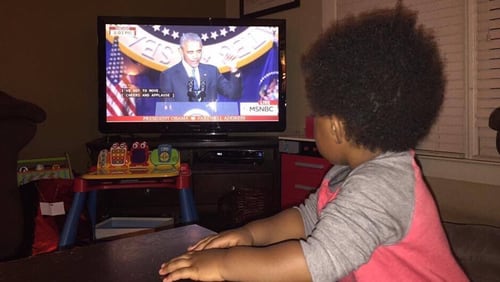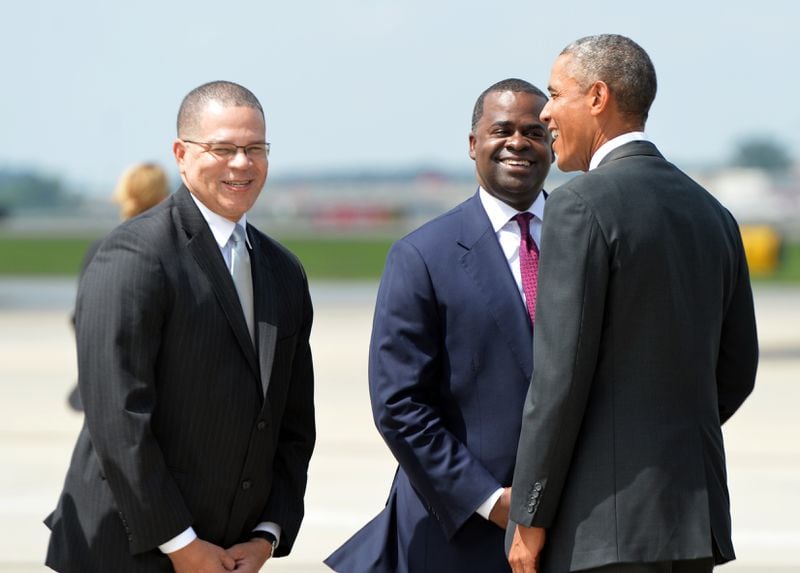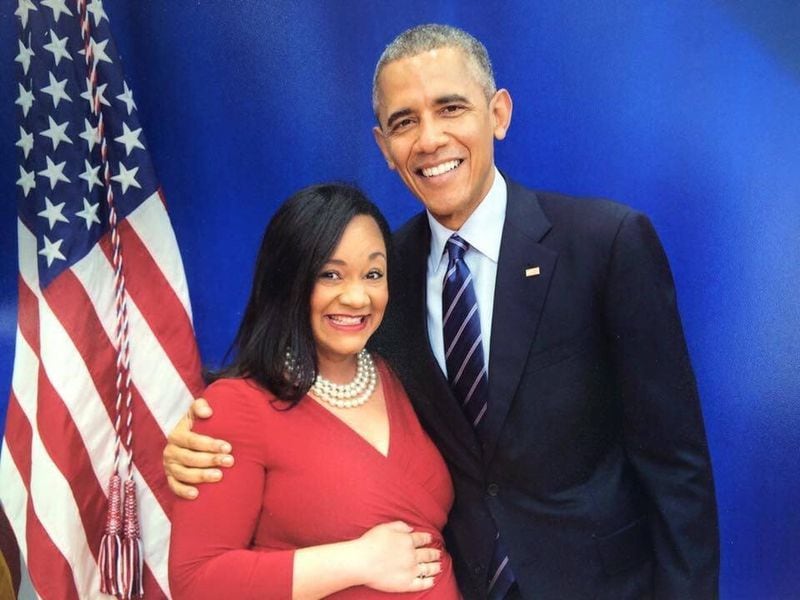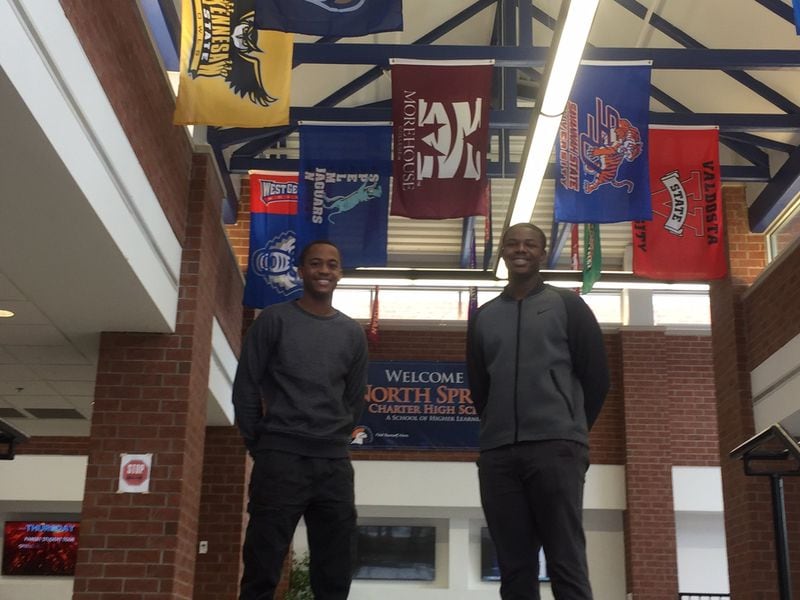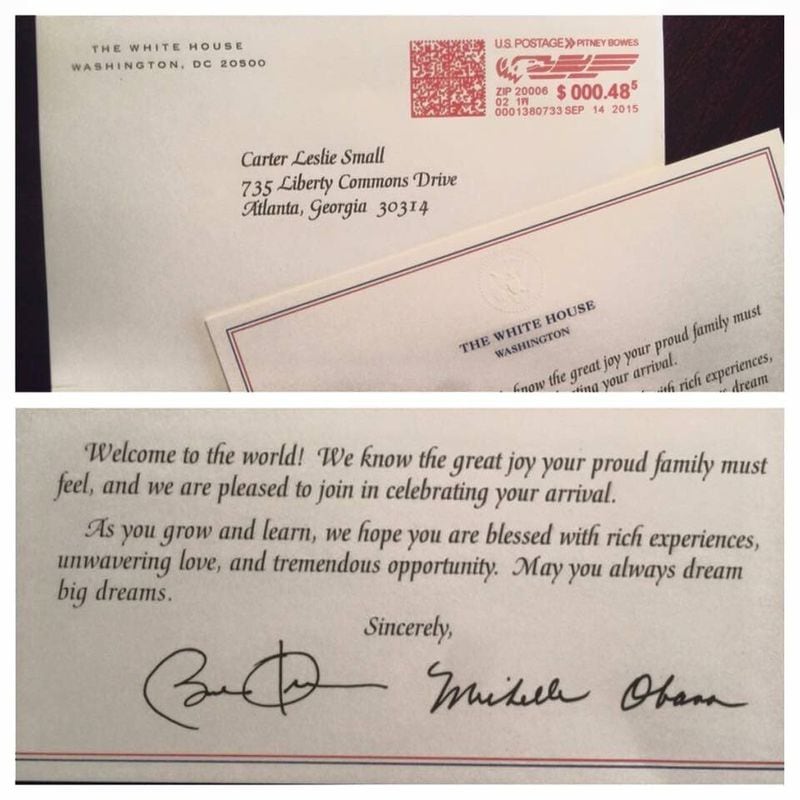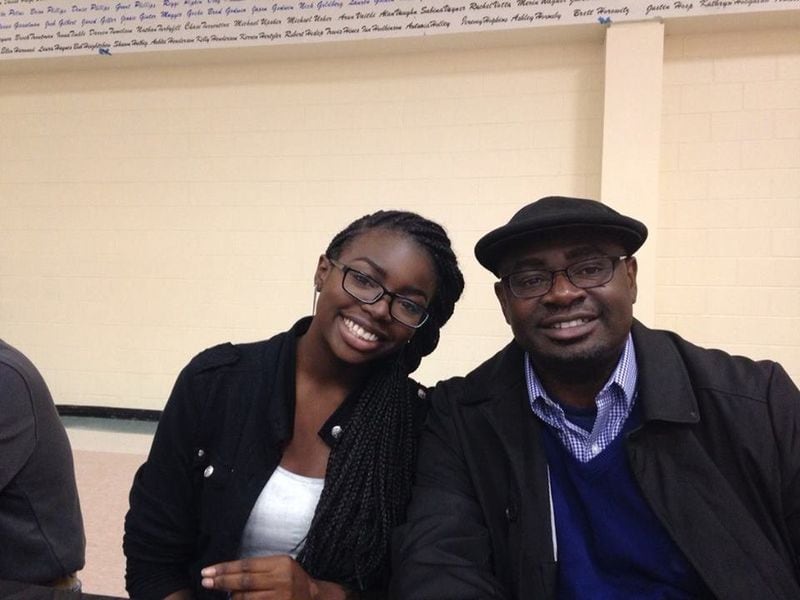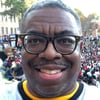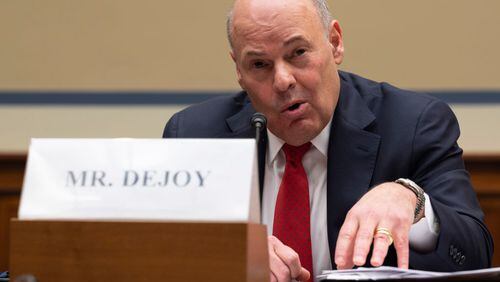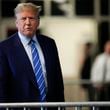Kasim Reed was relaxing in South Florida one January weekend in 2006 when a friend asked him to make a trip to Chicago, of all places, for a dinner party.
Reed, then a Georgia state senator, was practically in the tropics. Chicago? He hadn’t even packed a coat. He said no three times and then finally relented and made the trip. In freezing Chicago, the guy who answered the door was the junior U.S. senator from Illinois: tall and lanky, prominent ears, broad smile, unusual name: Barack Obama.
“He greeted me warmly and invited me into his new house,” said Reed, now the mayor of Atlanta. “There were still boxes everywhere, but it was warm and upbeat and special.”
Obama told his guests he wanted to be the next president of the United States.
African-Americans saw Obama's ascension to the presidency and the class with which he carried himself as particular points of pride. Last Tuesday, his emotional farewell address as the 44th and first black president of the United States instantly became a seminal moment in black history.
Consider that nearly two-thirds of black Americans rank Obama’s election as the most significant event of their lifetimes, polling by Pew Research Center found.
“He’s my generation’s Jackie Robinson,” Mayor Reed said. “Except in a broader and more global context,” Reed said. “His success was not only important to people of color in the United States, but people of color around the world. His example changed the world view of what being a leader, being successful, and being competent meant.”
‘Continued hope in my country’
Late Tuesday morning Nikema Williams, vice president for public policy with Planned Parenthood Southeast, was on Facebook when she noticed all the chatter about people gathering in Chicago for Obama’s farewell speech.
A friend with an extra ticket invited her to come to Chicago. She booked a flight and arrived at McCormick Place just as Obama was hitting the stage.
“The tears didn’t start for me until my husband sent me a picture of my 17-month-old baby Carter watching this on television,” said Williams, whose aunt Autherine Lucy integrated the University of Alabama in 1956. “This is exactly what I needed to see to reinvigorate those feelings of hope and pride we all felt in 2008. Carter is our future and seeing my little black son, who lives in Vine City, watch the final address by our nation’s first black president gives me continued hope in my country and our future.”
In ways that his predecessors could not, Obama spoke directly to African-Americans, even when he wasn’t using words.
Remember the Fist Bump with Michelle?
Booker T. Washington in 1901 became the first black man invited to dine at the White House — by Teddy Roosevelt, who had just become president. The furor surrounding that visit was so intense and vicious that it would be 30 years before another black person ate off the presidential china.
‘Among the greatest presidents ever’
Obama's White House embraced black culture and reveled in it. From his singing Al Green, to hosting Prince and Kendrick Lamar, to bringing black art into the White House, to dancing with 106-year-old Virginia McLaurin.
“I tell you, I am so happy,” said McLaurin, who was born in 1910 during the Taft administration. “A black president. Yay. And his black wife.”
In the latest Gallup Poll, 55 percent of Americans and more than 90 percent of African-Americans approve of the job Obama is doing in office.
“If you pick the metric that you want to measure someone by, he is a person of enormous achievement,” Reed said. “He will have one of the most consequential presidencies in the last 100 years. And when the layer of opposition, other than issues related to race, has faded, his accomplishments will be viewed among the accomplishments of the greatest presidents ever.”
When Obama took office in 2009, the country was in the midst of the worst economic crisis since the Great Depression. Among his first actions was bailing out the banks and saving the auto industry. Since he has been in office, more than 11 million U.S. jobs have been added, the high school graduation rate is at its highest and in 2015, median household income jumped 5.2 percent to $56,516 in 2015.
Black households saw a slightly smaller increase, 4.4 percent, and the black unemployment rate, 8.1 percent, is higher than the national average of 4.7 percent.
His Affordable Care Act, mocked by Republicans and on the verge of being repealed, has provided insurance coverage for more than 20 million Americans.
He oversaw the killing of Osama Bin Laden and normalized relations with Cuba. To the surprise of everyone, including him, he also managed to win a Nobel Peace Prize.
Obama paused, then ignored a congressman who called him a liar in the middle of his 2009 State of the Union. But during the 2015 State of the Union, when Republicans gave him mock applause for saying, “I have no more campaigns to run,” Obama had a quicker retort: “I know because I won both of them.”
‘Made me believe it was possible’
Andrew Young, like Reed, said when the history books are written, Obama will be mentioned in the same breath as great presidents like Roosevelt and Lincoln.
“He was not only a good president, he was a great president when you consider the times that he inherited,” said Young, who is also a former Atlanta mayor, a former congressman and a former U.N. ambassador.
“The Obamas were constantly forced to run the gauntlet and they never stumbled. Not a single one of them. The country was even willing to hurt itself to keep him from getting credit. That is the thing he understood. But I don’t think liberals understood how deep the racism was in this country.”
Grant Showell went to Washington with his parents for the first Obama inauguration in 2009. He was 8.
Showell recalled it was a cold morning. The crowd was diverse. Obama repeated his signature campaign slogan “Yes we can.”
“It felt like it was a civil rights accomplishment,” said Showell, now 17, a senior at Fulton County’s North Springs Charter High School.
Showell was among a small group chosen in September to represent the 1,625-student body on a task force aimed at improving race relations and dialogue after a student sit-in. Classmate Joshua Patton, also 17 and a senior, was selected to be on the task force.
Both students are youthful versions of the outgoing president – bright, slender and black. They credit Obama for sparking an interest in politics. Patton can quickly cite Obama’s private sector jobs record. They’re involved in efforts to improve their community. The two students, both considering careers as physicians, say Obama’s presence in the White House has made them believe they can do anything in life with hard work.
“At the time, people said you can be president of the United States, but you never really believe it,” Patton said. “(Obama) made me believe it was possible.”
‘Michelle Obama was stronger on race’
But for all that Obama meant to African-Americans, some say he didn’t actually do enough for them — particularly in the areas of social justice and police brutality.
In 2012, Obama famously said, “If I had a son he would look like Trayvon,” as he commented on the shooting death of 17-year-old Trayvon Martin.
After Martin came Eric Garner. Then John Crawford III. Then Michael Brown. Then Tamir Rice. Then Walter Scott. Then Freddie Gray. The names of just a few of the unarmed black men who were killed by police while Obama was in the White House.
Republican fundraiser Simone Perry said Obama has been lukewarm on actual race relations, which should have been his focus.
“When Barack Obama entered office, race relations were volatile. Now they are more volatile than they have ever been,” said Perry, 26. “I didn’t expect race relations to be a big issue in my lifetime, especially because of the historic role that he played. I think Michelle Obama was stronger on race than he was. I expected more from him.”
Perry calls herself a “homeless Republican,” as she didn’t vote for Trump. She never voted for Obama, either, but admits that she will miss his character.
“Class. Intellect. Integrity. All of those things I am going to sorely miss,” Perry said. “The Trump administration is a blow to what the presidential image is supposed to look like.”
King predicted a black man’s election
Today would have been Martin Luther King Jr.'s 87th birthday. Young, a close confidant of King, recalled that in 1964 King predicted that there would soon be a black president, although not in his lifetime.
Young, born during the Great Depression and one of the architects of the civil rights movement, lived to see it. But while other Atlanta civil rights figures were very much in the president's circle — John Lewis, Joseph Lowery and C.T. Vivian each got Presidential Medals of Freedom from Obama — Young intentionally remained on the outside.
Young was no stranger to young upstarts who blazed fiery trails only to fizzle out and fall back to earth. He said in 2007 that while he wanted Obama to be president, he would rather he wait and run in 2016 — behind Hillary Clinton.
“He was always extremely articulate and knowledgeable,” Young said. “It was clear that he was presidential character and material. But I couldn’t imagine that he could have survived New York, Chicago, Harvard, California and Hawaii without any scandal. I was afraid.”
Young said he had concerns about Obama’s age but quickly came around.
“One regret I have is that I was not able to help him, but I didn’t want to be another Jeremiah Wright,” said Young, who was awarded a Presidential Medal of Freedom in 1981 by Ronald Reagan. “I didn’t want to hurt him in any way and there was nothing that I could do that would have been helpful.”
Reed, who considers Young a mentor, said he found another one, as well as a big brother, in Obama.
“When my daughter was born, President Obama was the first person to send me a letter, and Vice President Biden called me while I was in the hospital,” Reed said.
He said both men set an exceptional example of public service.
When push came to shove …
Patton, the North Springs student, also saw a mentor from afar in Obama.
“I see him as somebody you look up to that you can see as a mentor, although they are not directly communicating with you,” he said.
Meagan Mwanda was 11 when Obama was elected. The 19-year-old University of Georgia sophomore remembers watching the 2008 returns at a viewing party with her father and his fraternity brothers. Both of her parents were born in the Congo and during the entire campaign season, her father said he was voting for Republican John McCain.
“On the ride home I asked my father if he voted for McCain,” Mwanda said.
Her father, Pambu Mwanda, looked at her. He looked at her younger brother, Daniel, sleeping in the backseat.
“He said, ‘How can I sit hear and tell Daniel to work hard be a successful black man, when I am not contributing to the ultimate example of that?” Mwanda said of her father.
“He voted for Obama.”
Data specialist Jennifer Peebles contributed to this article.
